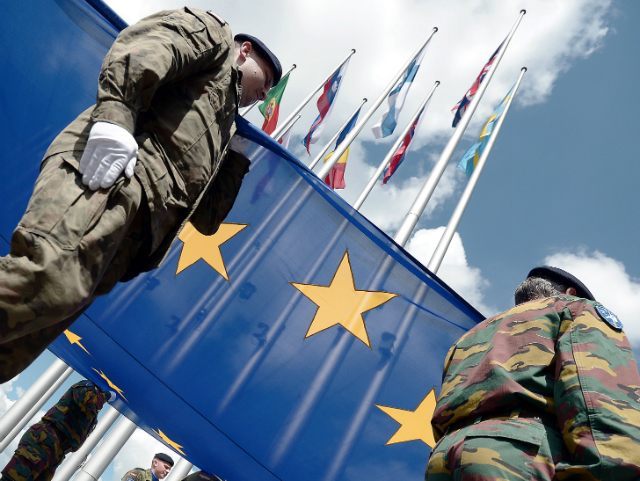David Cameron will fail to secure any meaningful European Union (EU) renegotiation on behalf of Britain in advance of the country’s referendum on membership, unless he openly supports the idea of a unified EU army, according to German Chancellor Angela Merkel.
Mr Cameron had to make the concession of an EU referendum ahead of the British general election in May, even though he is on the record as having said he didn’t want do it. The Conservative Party was concerned over the rise of UKIP in 2015, and the promise of the referendum was seen as a way to stifle the party’s growth.
But he predicated the referendum on a “renegotiation” first – an idea that has been roundly ridiculed by Eurosceptics who believe that the EU project is fundamentally unalterable.
Now the German Chancellor has underscored that futility, by demanding Mr Cameron support Europe-wide army integration in exchange for any changes to Britain’s EU membership. For the past few years, the British political establishment claimed there were no plans for an EU army. The first major flashpoint of such a debate came in 2014, when UKIP leader Nigel Farage debated then Liberal Democrat Deputy Prime Minister ahead of the European elections.
Mr Clegg called the idea a “fantasy” that was “simply not going to happen”– a description which was soon debunked as it became clear at an EU Army was in fact in the plans of major EU bureaucrats.
The Telegraph quotes a Berlin source who said that Mrs Merkel’s defence plans would be a “favour” she would seek from Mr Cameron during the renegotiation process.
“If you want favours, you have to give favours,” the source told the paper.
“If Cameron wants a ‘flexible Europe’, he must let other members integrate further. Yes – opt out, opt out, opt out – and then shut up.”
A 10 point plan, thought to be sourced from Merkel’s CDU party said the Chancellor wants: “a permanent structured and coordinated cooperation of national armed forces in the medium term.
“In the long run, this process should according to the present German coalition agreement lead also to a European Army subject to Parliamentarian control.”
It adds: “In the framework of NATO, a uniform European pillar will be more valuable and efficient for the USA than with the present rag-rug characterised by a lack of joint European planning, procurement, and interoperability.”

COMMENTS
Please let us know if you're having issues with commenting.